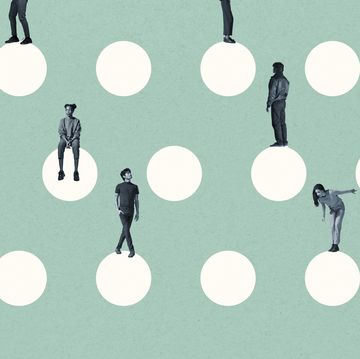If you’re like the 88 percent of women regularly not sleeping through the night (according to a recent Women's Health survey), you’ve probably found yourself looking for alternatives to counting sheep.
Last year, the National Institutes of Health reported that 3.1 million Americans used melatonin supplements to fall asleep. “Melatonin is a natural hormone secreted by your brain that helps regulate your circadian rhythm, or when your body wants to wake up and go to sleep,” says Jocelyn Cheng, M.D., a neurologist at NYU Langone Health.
Studies have actually shown that melatonin can help people with sleep disorders fall asleep anywhere between 27 and 50 minutes faster.
But before you go buy out your local vitamin shop's stock, remember: “A supplement is not a regulated drug, so there’s always a question as to whether you’re getting what it claims to be,” warns Rachel Salas, M.D., a neurologist with a focus on sleep disorders and sleep medicine at Johns Hopkins Medicine.
One study actually found that 71 percent of melatonin supplements did not meet the claims on the label, with some listing up to five times the amount of the hormone than it actually contained. Look for supplements displaying seals from the United States Pharmacopeial Convention or NSF International so you know the manufacturers are legit.
Of course, like any drug or supplement, melatonin can come with some side effects.
While many of the potential side effects listed on the internet—like short-lasting feelings of depression, dizziness, low blood pressure, or mild irritability or anxiety—are exceedingly rare, doctors say these four melatonin side effects occur with slightly more regularity:
Drowsiness
The biggest side effect that comes with melatonin is actually grogginess. “It’s like a hangover,” says Salas. That feeling of grogginess or not wanting to to get up is something that’s often associated with sleep aids. “That’s just really the nature of the game of promoting sleepiness,” she says. “In some individuals, the sleep effect can hang around in the body a little bit longer—their body may not process the supplement as quickly, and so they’re still experiencing the effects when they wake up,” says Salas.
Insomnia
“The most common thing I hear from patients is that melatonin doesn’t work,” says Salas. Patients often expect the drug to work more like a sleeping pill than a sleep aid—and as a result, don't take it properly.
Your body naturally produces a surge in melatonin around 7 p.m., says W. Christopher Winter, M.D., president of Charlottesville Neurology and Sleep Medicine and author of The Sleep Solution: Why Your Sleep Is Broken and How to Fix It. “That’s why it’s really meant to be taken at sundown, to help boost your body’s natural production and send your brain the message that bedtime is coming,” he explains. “If not taken properly, it can actually make it harder to sleep.” So if you want until 11 p.m. to take it, it may already be too late for it to do its job.
Headache
Most medications include headaches as a common side effect. “When people take a new drug or supplement, prescribed or not, their bodies may react differently and headaches are a typical response to that,” says Salas.
Not to mention, “melatonin is tied to your circadian rhythm, and anything that relates to the timing of your body can be affected when you take it,” says Winter. Timing matters here because if your body isn’t on the right sleep schedule (i.e. you’re taking the melatonin late and still waking up early), you could end up waking up during deeper REM sleep, which would leave you feeling headachy.
Gastrointestinal Issues
Nausea, constipation, and an upset stomach are all common reactions to medication, and could come with taking melatonin. “The ingredients in a drug or supplement can change—even what’s holding the tablet or the capsule together—and that could cause irritation in your GI system,” says Salas. She often warns her patients to avoid buying melatonin in bulk until their know how their body is going to react. “You might have GI effects with one brand versus another, so it’s worth waiting to see what happens before committing to a specific supplement.”














